Weight training requires a good diet for strength and muscle development. Many of us wonder if it is possible to combine muscle mass gain with a vegan diet. Is a diet that prohibits meat and everything that comes from animal exploitation sufficient for bodybuilders? Are supplements necessary?
What exactly is veganism?
More than a dietary habit, being vegan is a way of life. Today, many people are choosing to become vegetarians. Vegans choose to live without accepting animal exploitation. Thus, their diets eliminate all products of animal origin. You won't find red meat, chicken breast, egg whites or even honey in the dishes of a vegan. Vegans do not consume dairy products such as butter, yogurt or cheese.
What does a vegan eat? One might ask what is left for vegans to eat after they have eliminated meat and all animal products. However, the vegan's pantry is full of foods that are rich in nutrients and provide a balanced caloric intake. There are grains, such as brown rice, brown bread and pasta. Vegans also eat tofu, legumes such as beans and lentils. Dairy substitutes and egg substitutes make vegan dishes more tasty. It should be remembered that yoghurts and cakes without animal milk exist.
Vegan and vegetarian: what are the differences?
The practice of vegetarianism dates back to ancient times. This style of eating excludes meat, whether red or white, from its meals. Vegans then consume other animal products such as milk and eggs. Some practice semi-vegetarianism, a diet that excludes red meat but includes seafood. Semi-vegetarians eat fish and shrimp. While most vegetarians have nothing against eggs, there are those who opt for lacto-vegetarianism. This consists of consuming dairy products, but banning eggs.
As for veganism, it excludes without exception all foods derived from animals. Veganism appeared in 1944 thanks to Donald Watson. Being vegan is not limited to food programs. It can involve all facets of life. However, speaking of food, honey, milk, cheese and yogurt made from animal products are banned.
Can you gain muscle by being vegan?
Many believe that vegans have difficulty gaining muscle or mass because they lack protein. In addition to the difficulty of building muscle, some even consider the practice of veganism as a source of deficiency in balanced nutrition. This prevents the followers from being in good health. However, vegan meals allow the body to benefit from protein-rich foods.
Vegetable proteins are necessary to build muscle. Indeed, the program of vegetable nutrition grants a lot of protein foods (soy protein, chickpea protein...). Animal proteins have zinc, which is not found in a vegan protein. We can still recover this deficiency by eating whole grains and lentils.
What can animal proteins be substituted for?
The essential amino acids found in protein are necessary for our health and for building muscle. Vegans must therefore replace the animal proteins they do not consume with suitable nutrients such as oilseeds. Rice and kidney beans provide amino acids that the body is looking for. They give us the feeling of satiety, but above all they allow the renewal of cells. Wholemeal pasta provides the necessary nutrition for sport. In addition to their high protein content, they are also rich in copper and iron. Soya is a perfect substitute for proteins from animal products. It is essential for a vegan weight gain. Consuming oatmeal also helps to compensate for the benefits of animal meats. By combining certain foods, it is possible to reconstitute a protein. Nevertheless, protein sources also contain carbohydrates.
How to build a complete protein with food?
To prepare for a bodybuilding session, you must take care of your sports nutrition. Knowing how to build your diet allows you to develop muscle mass as quickly as in an omnivorous diet. To gain muscle, vegans must assimilate a balanced diet for better anabolism.
As an appetizer and snack, fresh vegetables are important and prevent congestion. An avocado salad can provide a lot of vegetable protein at the beginning of the meal. It also provides the healthy fatty acids that the body is looking for. Whole grains with chia seeds should be included in the daily recipes of vegan athletes. Pasta salads in which mayonnaise and cold cuts are replaced by soya products are a treat for even the most demanding gourmets.
Vegans do not deprive themselves of delicacies for dessert. Even if they do not consume animal milk and butter, vegans eat chestnut cakes or chocolate pancakes. Waffles and pies can be baked without lactose, but they are moist and full of flavor. You can make vegan desserts with coconut milk or oat milk. Margarine replaces butter in the preparation of puff pastry.
Example of a Vegan meal:
Grated carrot
Tabbouleh with chickpeas
Soy and fruit yoghurt
Supplementation for vegans
prozis.com/558To stay in top shape and ensure muscle gain, the diet must contain sufficient caloric intake of fat, carbohydrates and protein. Some vitamins and minerals, such as vitamin B12, are difficult to find in plant products. In order to avoid any deficiency, supplements can be useful.
For more effective muscle development, vegans should add BCAAs (Branched Chained Amino Acid) to their diet. By consuming these supplements, the rate of protein synthesis increases. Thus, muscle building becomes faster. Vitamins allow a better muscle recovery. Here is the special whey that I recommend: 100% VEGETABLE PROTEIN
How do vegans train?
Like vegetarians and omnivores, vegans need rigor to advance in bodybuilding. Effective workouts rely on intense practices. Muscle fibers need to be torn apart to rebuild and grow in size. With regular exercise, it is possible for a vegan to progress at the same pace as other athletes. The body also requires optimal recovery so that the fibres can repair themselves.
Vegan athletes: three well-known names
Neil Robinson, one of the game's leading figures, is keeping meat out of his diet. He trained as a defender at Everton and went on to play for Swansea. European Cup matches, promotion to the Premier League and his team's various runs demand health, strength and fitness. A vegetarian, Neil Robinson has gone vegan.
Among the 25 strongest men in the world was Rich Roll in 2009. Without eating animal protein, he participated in three-day races, ocean swimming and running. This is one of the palpable proofs justifying the compatibility of intensive trainings and vegan diet.
Scott Jurek is running the Appalachian Trail in 46 days. Yet the ultra-marathoner is embracing the vegan lifestyle.
Thus, working out and gaining muscle is possible even with a vegan diet. To improve the results, you can consume food supplements. The diet must remain healthy and complete with amino acids, carbohydrates, lipids, omega 3 and especially protids to develop muscles. Thanks to wholemeal pasta combined with a legume, a vegan athlete can enjoy a protein diet.
To conclude
Even if we know that vegetable proteins are less efficient than animal proteins, they are still a way to build muscle for vegans if the body does not lack vitamins and minerals essential to our health and which are indispensable to the reconstruction of muscle fibers. It is therefore absolutely necessary to distribute the number of calories and macros in this diet and to supplement correctly to remain in good health.
Coaching of vegan people
Since I've been a coach, I've had the chance to transform many physiques.
I present to you an example among many others: a man and a woman that I followed in personalized online coaching and who both had a vegan diet.
We managed to work as a team to display their best physique.
Gaetan and Elodie followed a complete 3 month personalized program (training and nutrition). These two people were already practicing bodybuilding and both had the desire for a personal challenge.
If you also want to take up the challenge, you can!
To benefit from a customized 100 % bodybuilding and nutrition program:
Other articles to read :
Focus on macronutrients and micronutrients

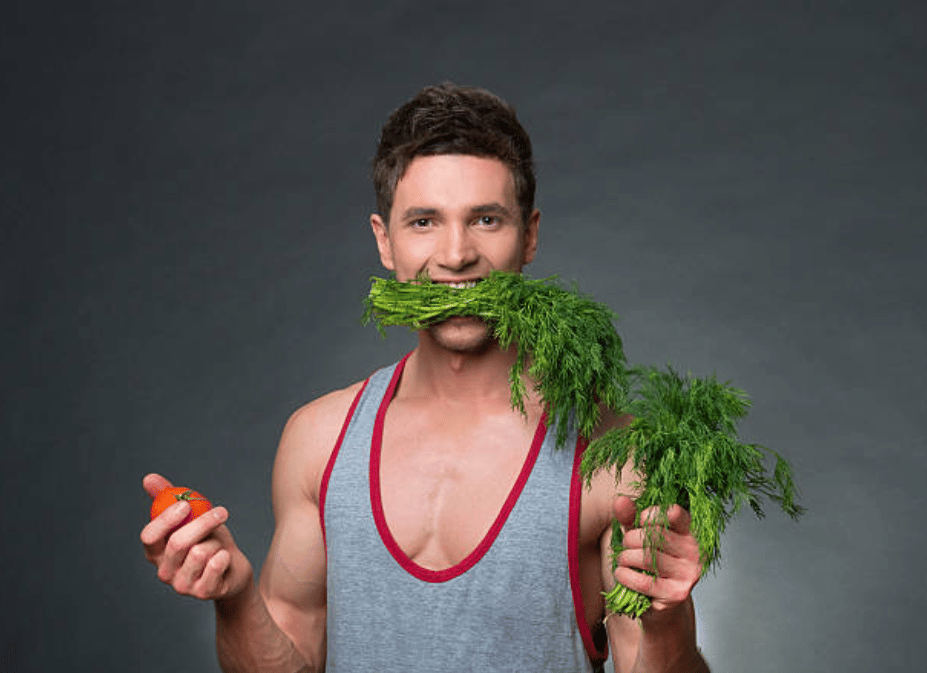
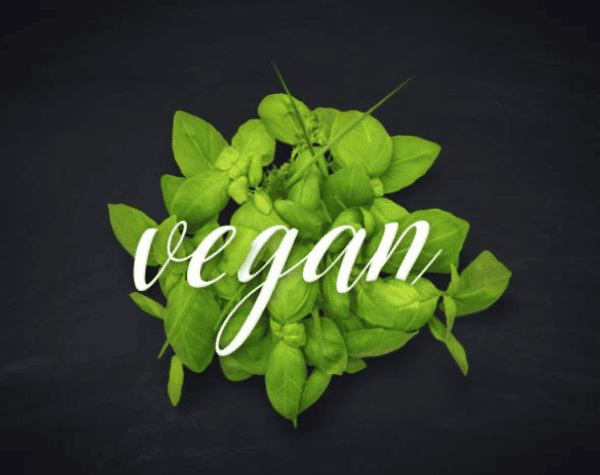
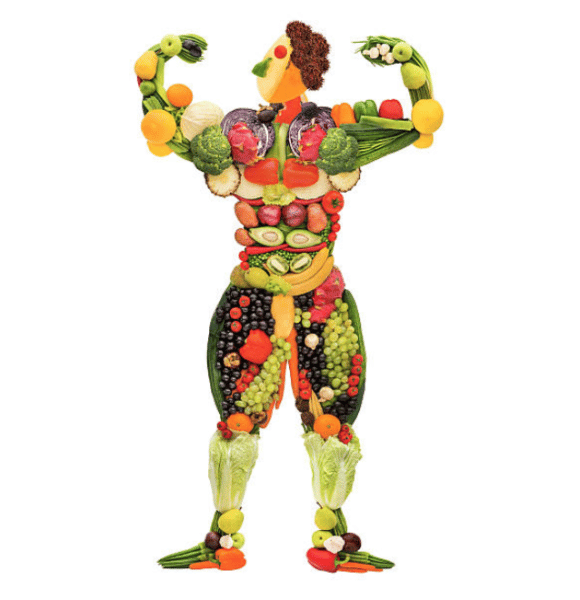
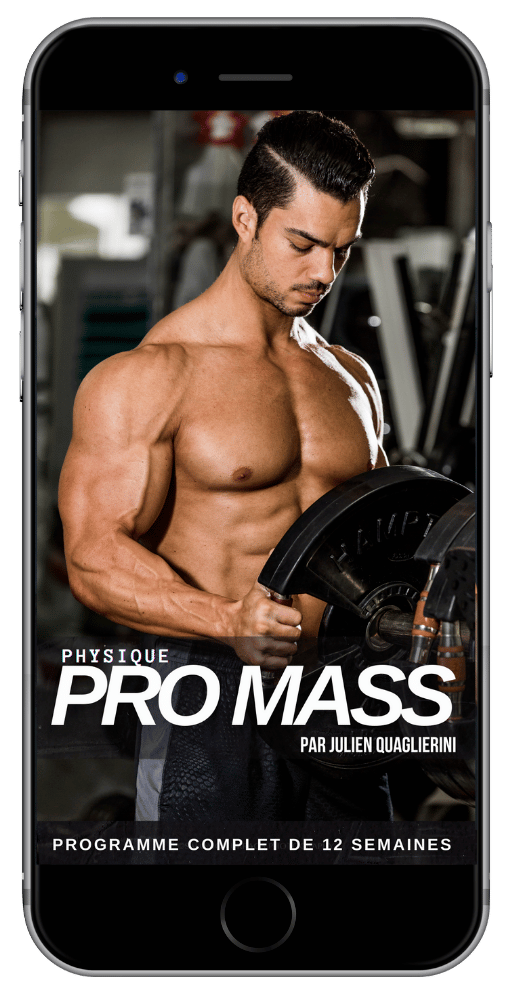
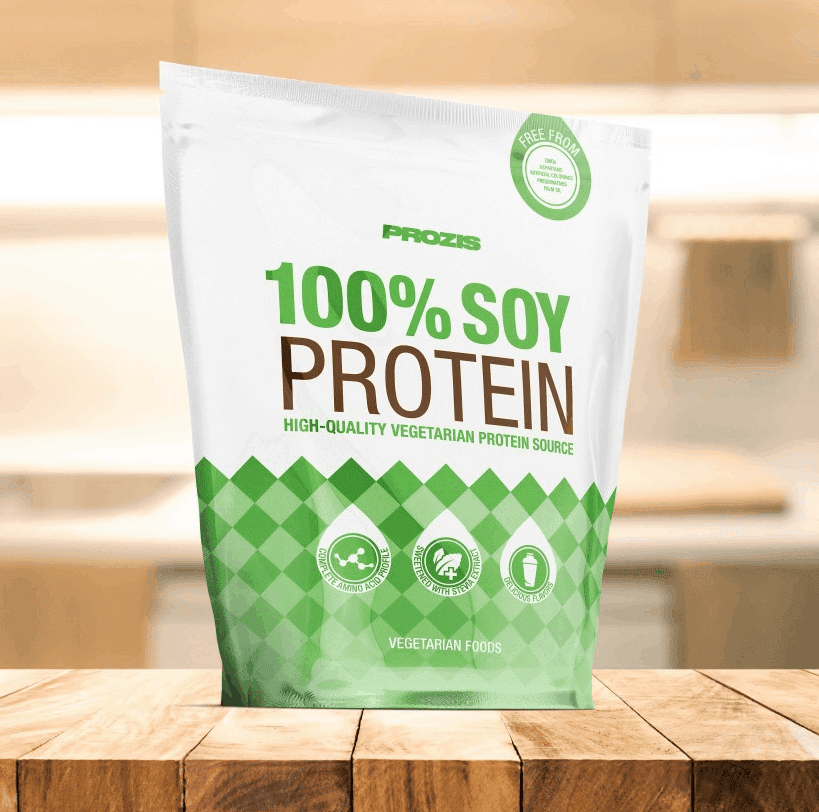
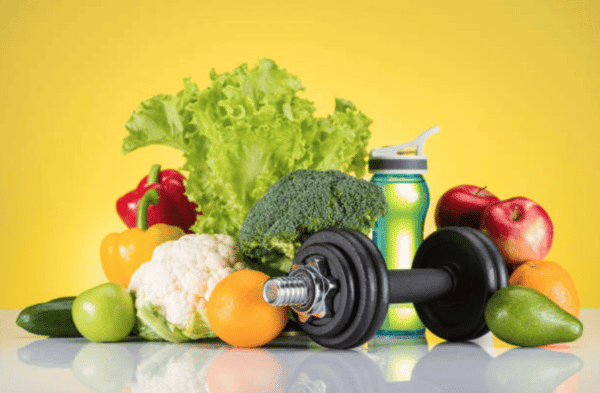
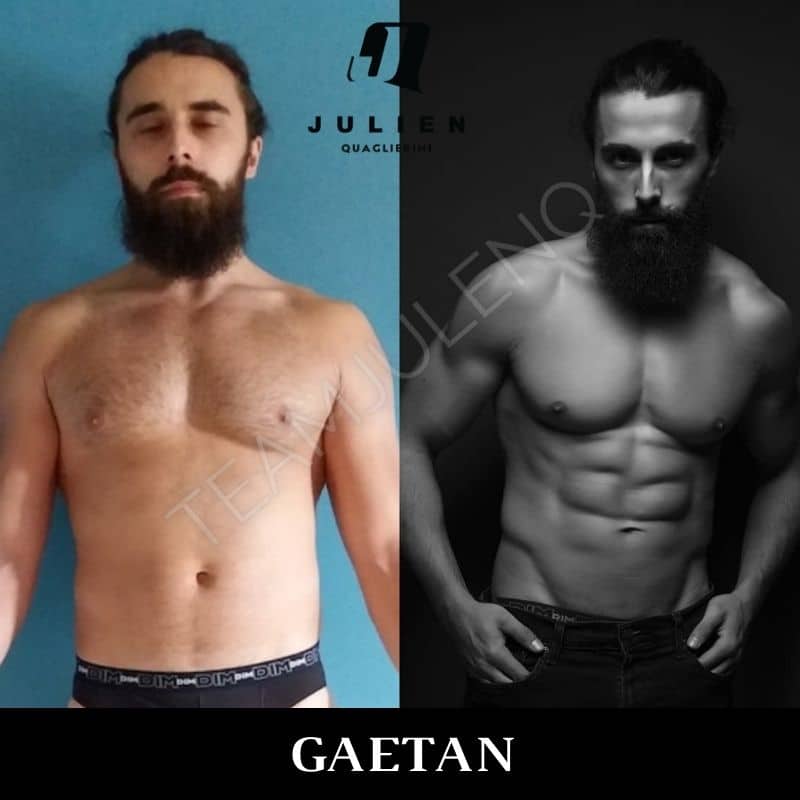
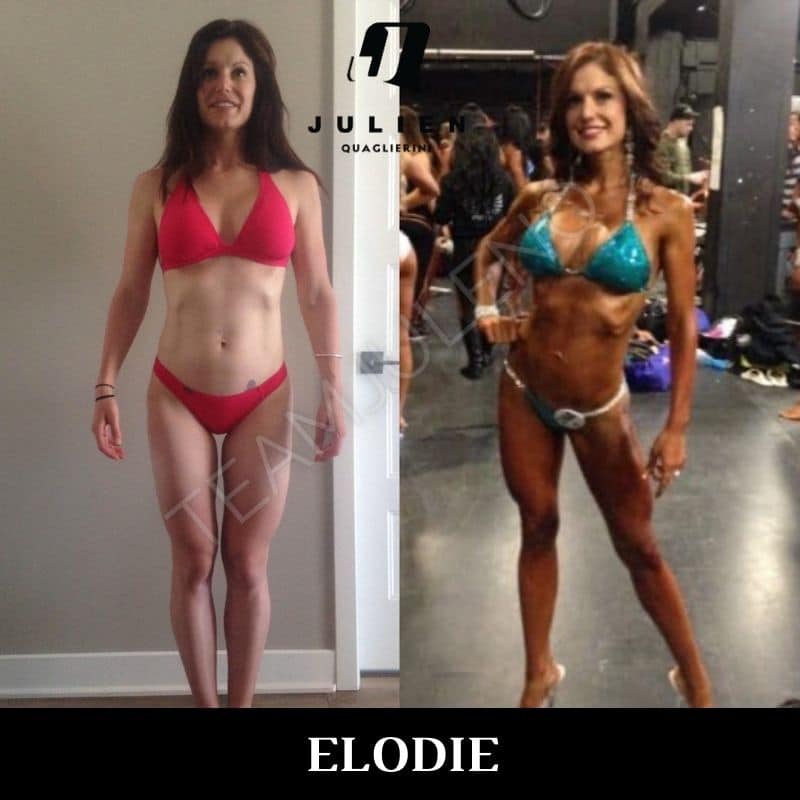
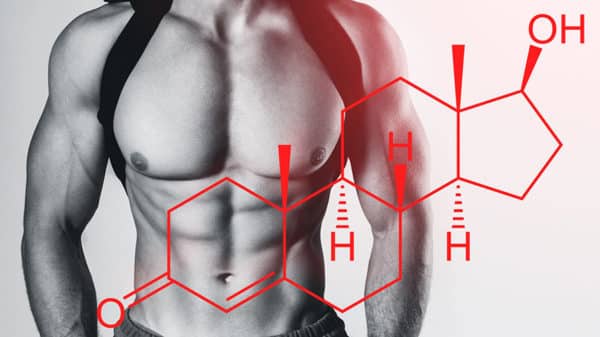
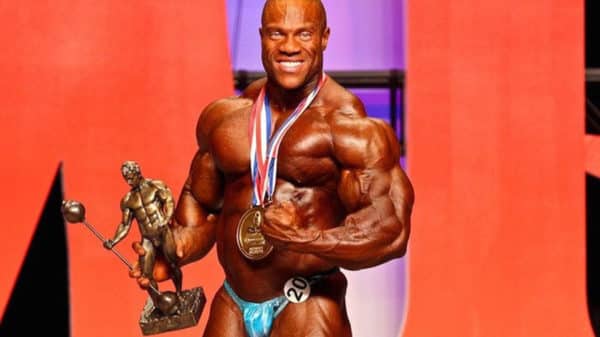
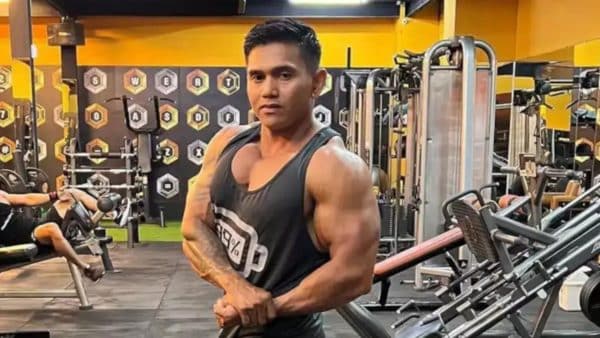



2 Comments
Thank you for your article julien, I'm going to read the one on soy protein which looks complementary to me, see you soon
First of all, hello
when we practice bodybuilding I do not understand how we can be vegan it is just the "fashion effect of the moment or what? it goes against our body and its functioning
a minimum of jujitsu is required
and even if your article allows to explain some techniques I am not convinced that people who eat vegan do not consume chemical foods or others which is not really logical in itself